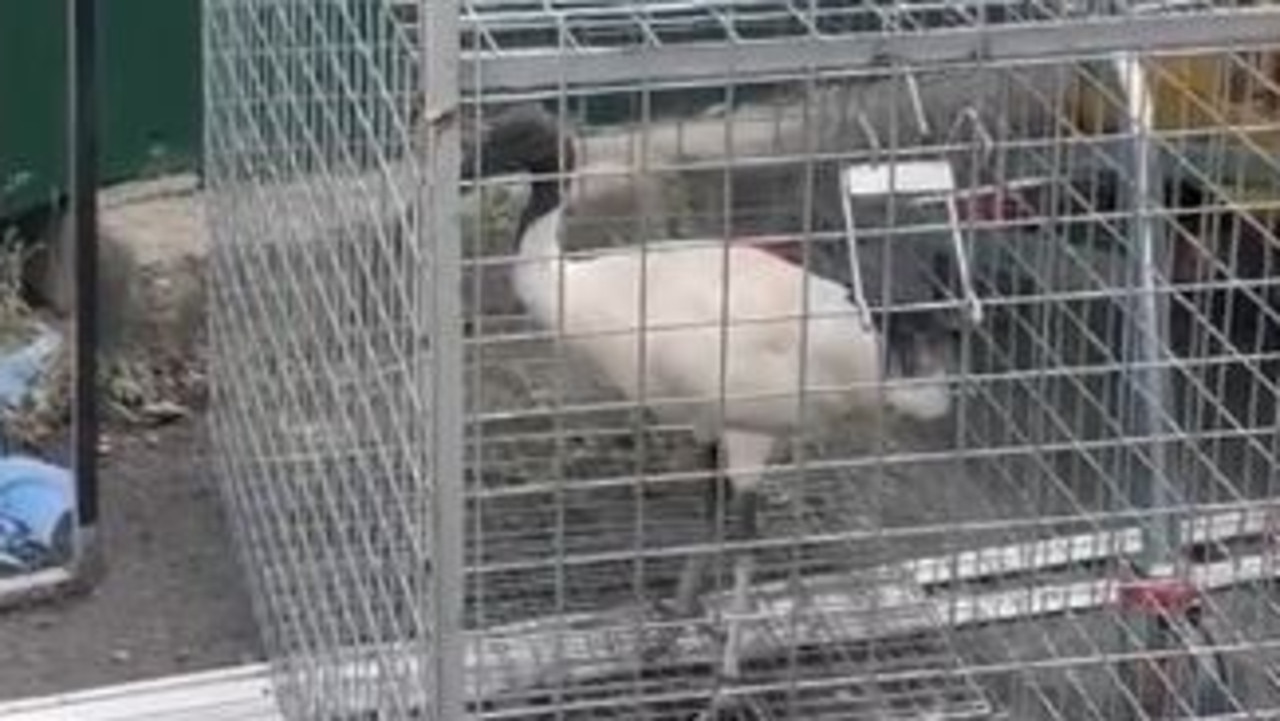Sea Shepherd renews call to rip up Gold Coast shark nets
A MILITANT green group is renewing its push for shark nets to be ripped out of Gold Coast beaches because they are archaic, ineffective and “purely a political measure”.
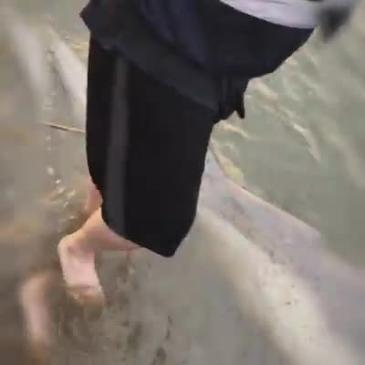
Pets & wildlife
Don't miss out on the headlines from Pets & wildlife. Followed categories will be added to My News.
A MILITANT green group is renewing its push for shark nets to be ripped out of Gold Coast beaches because they are archaic, ineffective and “purely a political measure”.
Sea Shepherd Australia yesterday took aim at the State Government to be more open about data surrounding sharks and wildlife caught in nets, saying it did not trust figures collected by contractors.
Sea Shepherd spokesman Jonathan Clark said independent observers should be allowed on the boats to oversee the workers who survey marine life which have been trapped and killed. “They’re the protected species,” Mr Clark said of the government contractors.
“One of the issues with Queensland is that there are no independent observers on board those contractor boats. There’s no scrutiny in Queensland at all.”
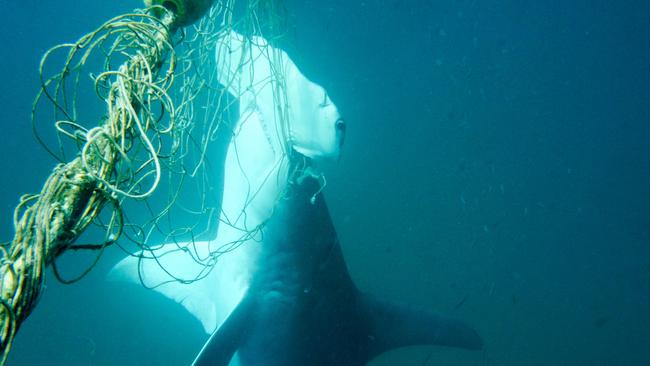
Mr Clark said he was tired of seeing dead turtles, dolphins and whales off Queensland beaches trapped in nets.
“We want to see the nets and drum lines gone,” said Mr Clark, the Queensland Apex Harmony Campaign director.
“They don’t actually provide for human safety and this idea that they do is ridiculous.
“There are nonlethal technologies that truly can provide for the safety of people in the water which is very much a concern of Sea Shepherd.”
He said sharks regularly swam inside the nets which are 186m long, 6m deep and staggered along the coast.
“It’s a completely redundant device,” Mr Clark said.
“This is one of those areas where Queensland can be roundly criticised for being well behind the times. We’re using 1930s technology and worse.”
The Gold Coast has not had a shark attack fatality since the technology was installed in 1962.
Northern NSW is recovering from a spate of shark attacks from late 2014, including two deaths.
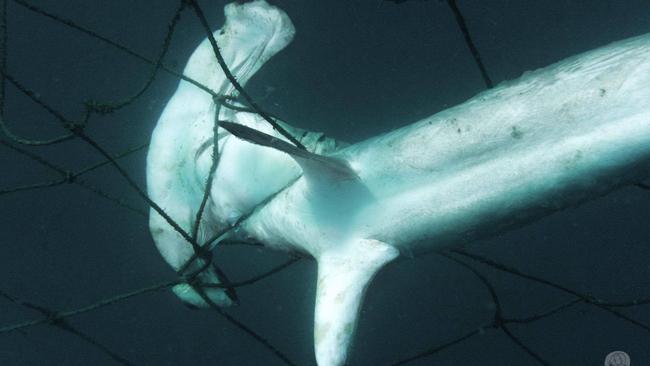
After two years of debate, a six-month trial of shark nets was implemented in Ballina in late 2016 and again this summer. There have been no shark attacks reported at the netted beaches.
Mr Clark said the best protection against attacks was shark spotting, “That’s why we are looking at drone technology, but none of it in Queensland I might add,” Mr Clark said.
“It’s difficult to fathom how dangling bait from hooks off surf breaks and patrolled beaches is a grand idea.
“They’re far from foolproof. People who think they’re a barrier (along the coast) are misinformed.”
Acting Fisheries Minister Stirling Hinchliffe fired back at Sea Shepherd’s call to remove the nets, saying there would be no changes to the shark control program.
“Before nets and drum lines were introduced in 1962 Queensland saw 20 fatal attacks at beaches which are now protected by the program,” Mr Hinchliffe said.
“The safety of Queenslanders and tourists who visit our beaches is the priority and any moves to remove the protections on our beaches will place lives at risk. It has undoubtedly saved lives and that’s why it will remain in place.”
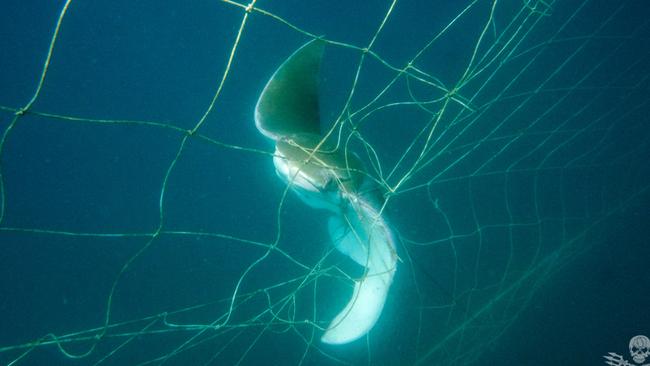
He said the government would monitor new technology, like drones and electromagnetic devices, but until something was proved nothing would change.
“While we continue to monitor emerging technology, the safety of swimmers is paramount,” Mr Hinchliffe said.
“In the last 55 years only one person has lost their life to a shark at a protected Queensland beach.”
In response to Sea Shepherd’s accusations that shark net contractors lacked scrutiny, the department said: “The procedures and performance of contractors is reviewed regularly”.

